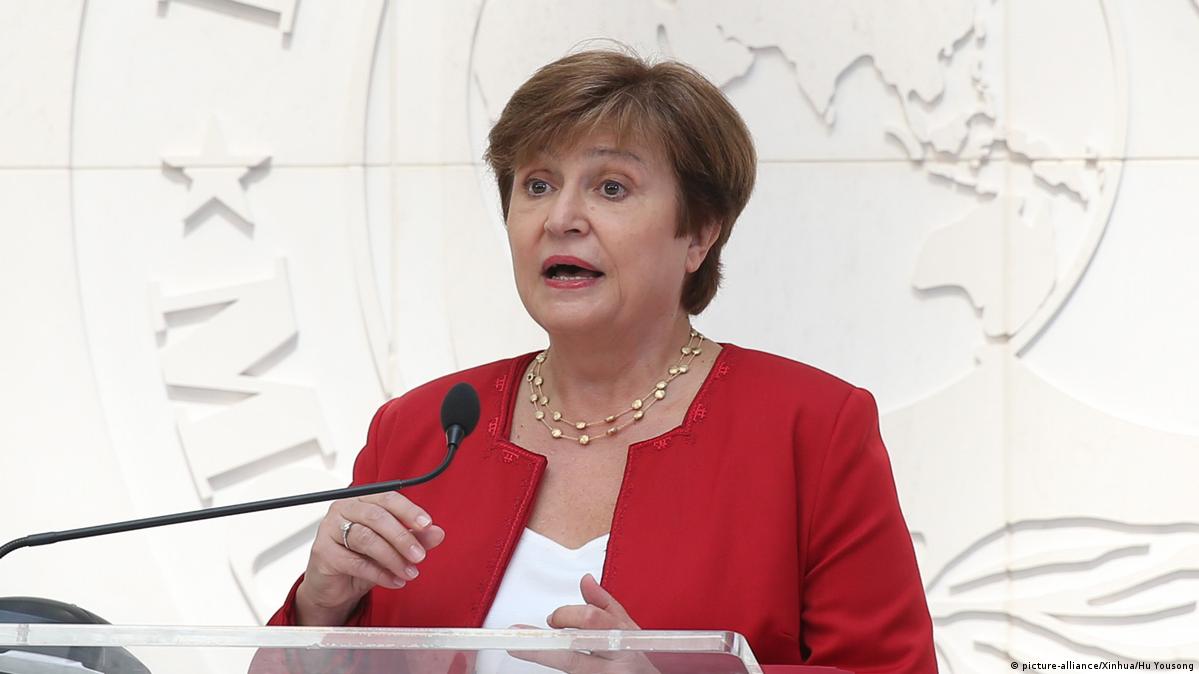Comments
- No comments found

The head of the International Monetary Fund (IMF), Kristalina Georgieva, has warned that the global economy is set to grow at its slowest pace since 1990.
Growth is expected to be around 3% over the next five years, according to the IMF.
Speaking ahead of the IMF's annual meeting in Washington, Georgieva described the path ahead as "rough and foggy," and called for greater cooperation to address the challenges facing the global economy. She also highlighted the need for more help for low-income countries, and called on wealthier nations to boost funds for the IMF, which provides low-cost loans to countries in need.
The IMF is bracing for a wave of requests for help or debt restructuring, as the Covid-19 crisis, the war in Ukraine, and soaring living costs continue to have an impact.
Despite strong job markets in some countries, global growth has continued to slow, with the IMF predicting growth to dip below 3% in 2023.
According to Georgieva, countries have shown resilience in recovering from the COVID-19 pandemic, which has had a devastating impact on global health, disrupted supply chains, and worsened food insecurity worldwide, with nearly 6.9 million lives lost. Advanced economies are struggling with high inflation, and poorer nations are grappling with debt, while major players such as the United States and the European Union are reconsidering their trade ties with China.
Countries are struggling for various reasons. The COVID-19 pandemic has had a major impact on the global economy, leading to job losses, reduced consumer spending, and disruptions in global supply chains. In addition, many countries are facing rising inflation rates, which can erode purchasing power and lead to higher borrowing costs.
Other factors contributing to the economic struggles are the global cost of living crisis, collapse of major banks and the war in Ukraine. The combination of these factors has made it difficult for many countries to achieve sustained economic growth and has led to concerns about the long-term prospects for the global economy.
There are several strategies that countries can pursue to generate more growth:
Investing in education and skills development: Education is critical for economic growth, as it helps to create a more skilled and productive workforce. Countries can invest in education and skills development programs to ensure that their citizens have the skills needed to compete in the global economy.
Encouraging entrepreneurship and innovation: Entrepreneurship and innovation are key drivers of economic growth. Countries can create policies and programs that support entrepreneurs and innovative businesses, such as tax incentives, grants, and funding for research and development.
Promoting trade and globalization: International trade can help to spur economic growth by providing access to new markets and resources. Countries can promote trade by reducing barriers to entry, negotiating free trade agreements, and participating in international trade organizations.
Investing in infrastructure: Infrastructure, such as roads, bridges, and airports, is critical for economic growth as it helps to facilitate the movement of goods and people. Countries can invest in infrastructure to improve their transportation systems, communication networks, and other key infrastructure.
Fostering a favorable business environment: A favorable business environment is critical for economic growth, as it helps to attract investment and support business growth. Countries can create a favorable business environment by reducing bureaucracy, streamlining regulations, and protecting property rights.
Investing in renewable energy and sustainability: Investing in renewable energy and sustainability can not only help to protect the environment but can also promote economic growth. Countries can invest in renewable energy infrastructure, such as solar and wind power, and create policies that encourage sustainable practices in businesses.
Bhumesh is the Managing Partner of Corp Comm Legal, an Indian law firm. He is ranked among the Top 100 Indian corporate lawyers. He is advising domestic and foreign companies on M&A, joint ventures, corporate - commercial issues. Besides, he has written a book on Drafting of Commercial Agreements, has a couple of books in pipeline and trains students and professionals on Drafting Skills and corporate laws. He writes regularly on legal, business & other issues and is a guest faculty lecturer with educational institutes. Bhumesh holds a Bachelor of Laws (LLB) from the University of Delhi and a further qualification in International Law and Legal Studies from College of Law, York.
Leave your comments
Post comment as a guest